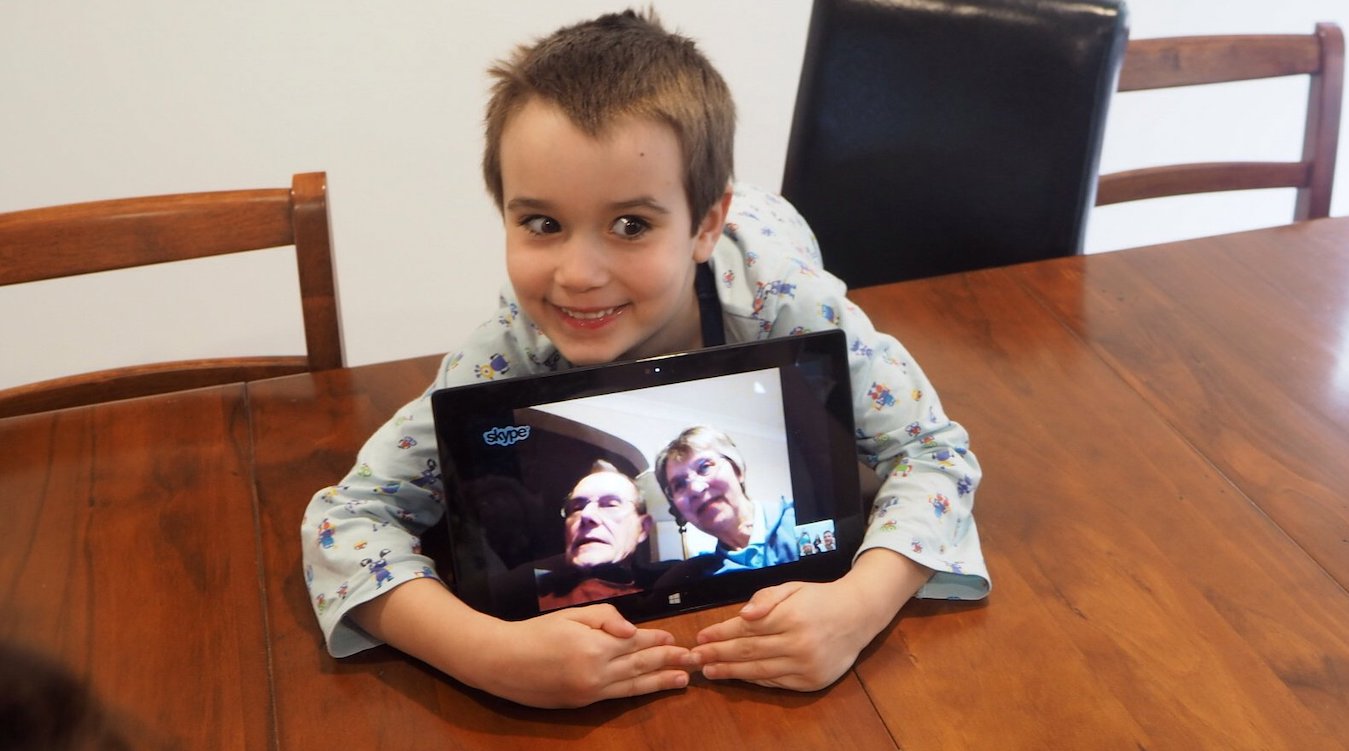The most ubiquitous phrase popularized by the coronavirus epidemic, “social distancing,” carries connotations of shunning or anti-social behavior. The isolation of the elderly particularly tugs at our heartstrings. The widely shared photo of 88-year-old Dorothy Campbell speaking through a nursing home’s window to her 89-year-old husband, Gene, poignantly depicts the deep-seated need for human contact amid the obstructions of anti-virus protocols.
But distancing in a time of global pandemics preserves life. As such, it should be seen as a form of “applying love through prudence,” writes Dustin Siggins at FoxNews.com. “And in doing so, it offers an amazing opportunity for those who care about the elderly to find new ways to love them.”
As Doug McCullough and Brooke Medina note in this week’s Acton Commentary, “[W]hen social interaction is discouraged, or forbidden, it can foster feelings of loneliness and isolation.” But proper care for the physical health of older adults need not require neglecting their emotional health. Younger people experiencing forced time off from school or work now have more opportunities to contact the elderly and “to create closer familial relationships,” Siggins writes.
Another way to care for the whole person, body and mind, is to facilitate senior citizens’ use of modern technology:
Skype, Zoom and FaceTime may be newfangled, but they may also be mental health savers for quarantined senior citizens. The gift of an iPad or laptop will teach people who may have never seen the value in technology-based social tools, keeping their minds sharp through continued learning and the human need to be with those whom we love. A digital picture frame takes less work, but the one my cousin and his wife bought Nana a few years ago is one of her most valued possessions.
All of these connecting and comforting technologies emerged in a free economy. Zoom founder Eric Yuan emigrated to the United States from China’s Shadong Province. FaceTime was created by Roberto Garcia for Apple. Skype grew out of the code developed by three Estonians (Ahti Heinla, Priit Kasesalu, and Jaan Tallinn) for Kazaa. The new company, initially called “Skyper,” was founded by Niklas Zennström of Sweden and Janus Friis of Denmark. This is no coincidence.
Economic freedom is the silent partner in eradicating the loneliness of COVID-19. The Global Innovation Index tracks closely with the Heritage Foundation’s Index of Economic Freedom. Only seven “mostly unfree” nations (China, Greece, Vietnam, Ukraine, India, Mongolia, and South Africa) and one nation rated “repressed” (Iran) rank above GII’s global median; all but China come near the bottom. (And one could plausibly argue much of the innovation that comes out of China originated elsewhere.) Their inclusion is an eloquent testimony that even the most determined government cannot stamp out the creativity infused into every human being created in imago Dei.
A free-market system incentivizes technological progress, because it allows inventors to profit from their innovations. In a true market economy, profits flow from meeting consumers’ needs or desires.
For this reason, entrepreneurs watching the Zoom founder’s success will seek to create similar technologies that repair the breach between loved ones created by the coronavirus. Yuan has added $2 billion to his net worth since the beginning of this year—$20 million on Monday alone. But he refused a lucrative source of profits last week, when he gave Zoom to K-12 schools for free.
The 50-year-old invented Zoom, because he got tired of driving 10 hours to see his college girlfriend. His technology was the byproduct of economic freedom and love.
Employing modern communications technologies to facilitate human contact during a time of isolation, Siggins says, offers us a chance to “turn fear into love.” Isn’t that the essence of the Christian faith?
(Photo credit: Henry Burrows. This photo has been cropped. CC BY-SA 2.0.)

